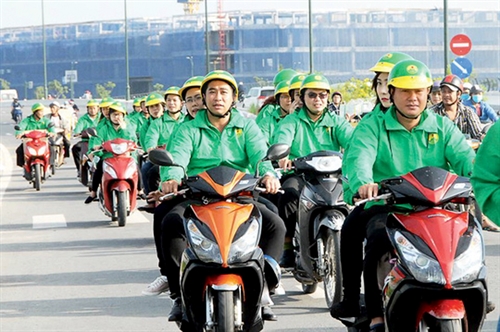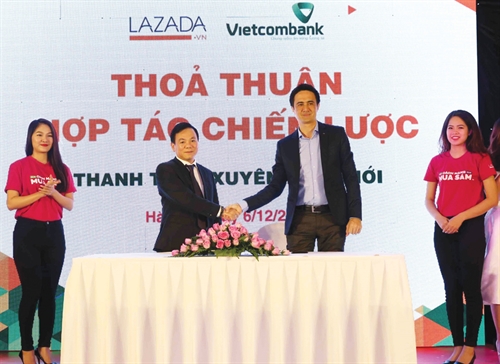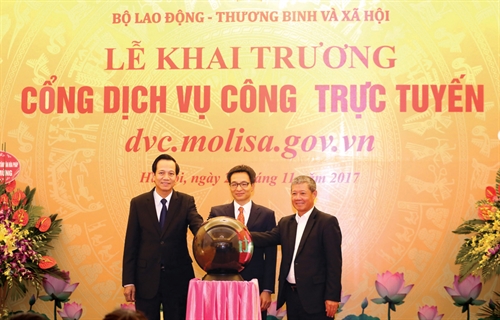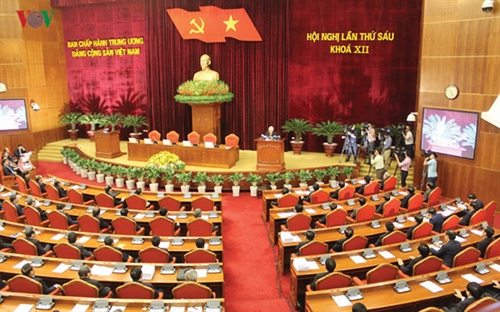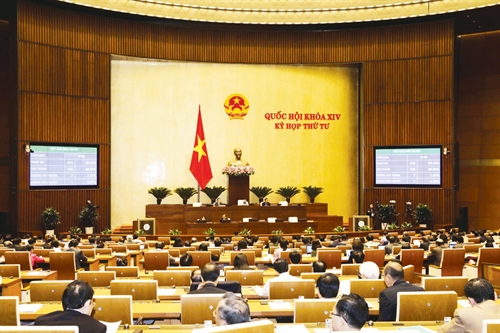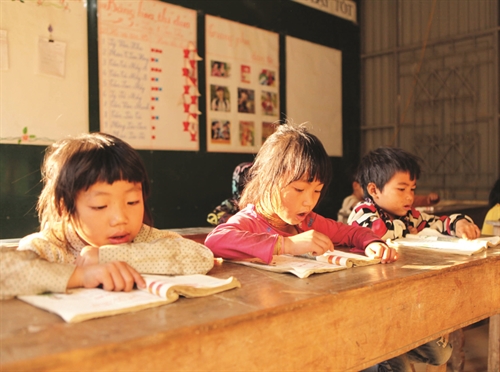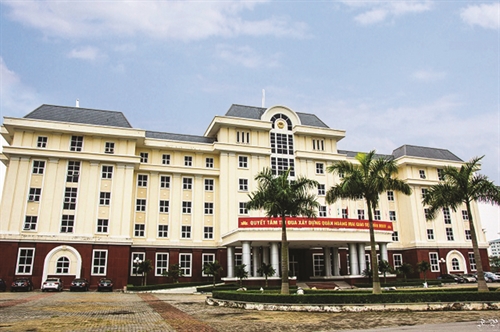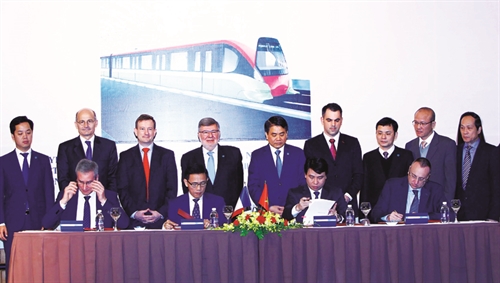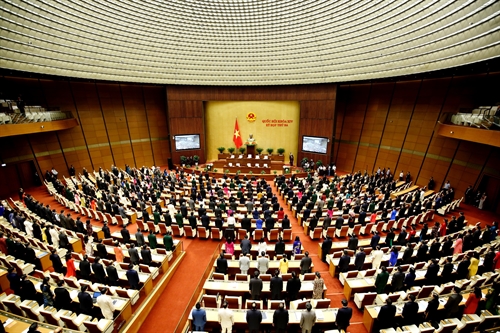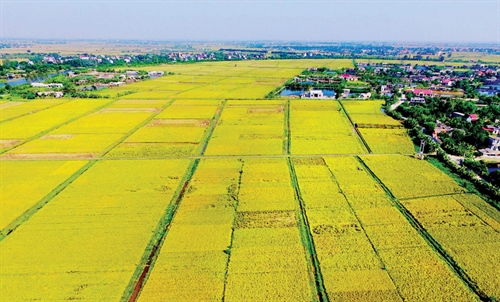January 6, 1946 marked an important event in the history of the country when the Vietnamese people cast for the first time their votes to directly select and elect talented and virtuous people to the National Assembly to shoulder the responsibility for national affairs.
 |
| Voters from Hanoi’s suburban districts cast their votes to elect the first National Assembly deputies__Photo: https://quochoi.vn |
Through their votes, the Vietnamese people vested in the National Assembly the mission of promulgating the Constitution and establishing the institutions of the People’s Democratic State. The success of the General Elections marked the birth of the National Assembly of the Democratic Republic of Vietnam, now the National Assembly of the Socialist Republic of Vietnam. The elections were the basis for asserting that the Democratic Republic of Vietnam is a state elected by the people in a democratic and lawful manner.
Since its inception, the National Assembly has been deeply imbued with the democratic spirit as the General Elections were conducted on the democratic and progressive principles: universal, equal and direct suffrage and secret ballot.
For the first time in the nation’s history, the people directly elected their representatives in the state apparatus, as President Ho Chi Minh asserted: “The general election is an occasion for the whole nation to freely choose talented and virtuous people to shoulder the work of the country ... General elections mean freedom and equality; democracy and solidarity.”
The spirit of democracy, creativity and responsibility of National Assembly deputies was also reflected in their intellectual and responsible discussions at the first session of the first National Assembly. At the second session of the first National Assembly, which lasted many days for the first time, the people were allowed to watch the proceedings of the plenary meetings of the Congress.
At the first questioning session, National Assembly deputies raised many questions and debated with cabinet members on both domestic and foreign affairs of great importance.
Answering the questions of National Assembly deputies, President Ho Chi Minh emphasized: “The Government first of all would like to thank the National Assembly for its great concerns about national issues and this questioning explicitly showed the democratic spirit of Vietnam.”
The first questioning session of the National Assembly lasted until midnight, showing the high sense of responsibility of lawmakers as well as the Government in discharging their duties.
In the course of considering and passing the first Constitution of the nation, National Assembly deputies also debated democratically and thoroughly about all the fundamental issues of a progressive constitution such as the political institutions, the organization of state power, and the rights and obligations of citizens.
The Constitution was the crystallization of the mind and creativity of lawmakers directly elected by the people.
Commenting on the first Constitution in the history of the country, President Ho Chi Minh affirmed it was “the first vestige of the constitutional history in the East Asia ... That constitution declared to the world that Vietnam has regained independence, the Vietnamese people have had all freedoms ..., Vietnamese women have been equal to men to enjoy the same freedoms of a citizen. That constitution displays a strong sense of solidarity among the nationalities of Vietnam and a spirit of integrity and equality of the classes.”
From these first sessions, through the ups and downs of history, the spirit of democracy, solidarity and responsibility for the interests of the people have been always reflected in the activities of the National Assembly.
Fourteen legislatures with the enthusiasm, wisdom, effort and creativity of thousands of National Assembly deputies have passed five constitutions and hundreds of codes, laws and ordinances.
Moreover, the National Assembly has regularly reviewed and revised laws to regulate relations of social life, creating a better legal system for the State to manage by law economic, social, security, defense, foreign relations and other fields.
Every constitution, law, resolution and important decision of the National Assembly is associated with the national development, reflecting the process of renewal of the country.
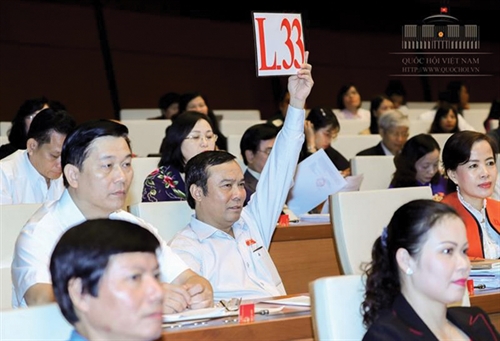 |
| National Assembly deputy Nguyen Ba Son from Da Nang city registers for debate at the 4th NA session__Photo: https://quochoi.vn |
Particularly, in the period of national renewal since 1986, the National Assembly has timely promulgated the 1992 Constitution, the 2013 Constitution and hundreds of laws and ordinances to create an important legal basis for the development of socialist democracy, the building of a law-ruled socialist state of Vietnam, the assurance of human rights, lawful rights and interests of citizens, and the promotion of comprehensive national reform and international integration.
Drawing on its 72-year tradition, in 2017 the National Assembly achieved remarkable achievements. The spirit of innovation, creativity and action in the interest of the people and the country continues to be reflected in the renovation of the work program of the National Assembly.
The reform of the way of discussing draft laws, socio-economic issues and the state budget, reports of the authorities, increase of the time of plenary discussions, and promotion of the dialogue and debate have contributed to improving the quality of lawmaking, oversight and decision on crucial issues of the country.
Live broadcasting of more plenary meetings of the National Assembly, including first-time plenary discussions on reports of the justice sector; report on settlement of complaints and denunciations; report on anti-corruption work; and report on the implementation of the national gender equity goals, has caught great attention from voters and people in every corner of the country, creating greater coherence between the work of the National Assembly and voters, and earned the support and appreciation of the people.
Legislative work of the National Assembly has become more and more substantive; its quality has been increasingly improved, addressing various issues in social life with many laws of significant importance to the national development.
Last year, the National Assembly passed 18 laws and debated 15 bills, many of which were difficult, complicated and even controversial, and had a broad range of regulation. But in the end, through candid exchanges with convincing arguments, lawmakers still reached consensus and passed the bills with a very high rate.
Congressional oversight in 2017 also recorded impressive results in scrutinizing burning issues of great public concern.
For the first time, the National Assembly carried out the supreme supervision of the implementation of policies and laws on the reform of the state administrative apparatus. Although limited to the 2011-16 period, the congressional oversight identified obstacles to the reform in legal institutions, intertwined interests and responsibilities of stakeholders, including the National Assembly itself, and put forward synchronous solutions to reforming the state administrative apparatus more drastically, effectively and substantively in the coming period.
In questioning work, 2017 marked a new point in questioning-answering sessions, that is increasing the time for questions and answers to three days so as to enable the deputies to clarify issues in question.
With the questioning and answering time increased while the number of people questioned unchanged, the number of questioning deputies is the highest ever. Questioning and answering sessions in an atmosphere of democracy, constructiveness and active debate helped clarify the responsibility of the questioned persons and, at the same time, bring into play the capacity of National Assembly deputies.
In order to enhance synchronism and effectiveness, the National Assembly Standing Committee together with the Government and the Central Committee of the Vietnam Fatherland Front signed a joint resolution on oversight and social criticism, creating a mechanism of coordination in organizing the implementation of this important content.
In 2017, the National Assembly also deliberated and considered objectively and comprehensively before passing many bills and making important decisions of the country, including breakthrough policies with great impacts on the national socio-economic development such as the policy on investment in the project to build some expressway sections in the North-South route in 2017-20; the feasibility study report of the project on land recovery, compensation, support and resettlement for the construction of Long Thanh International Airport; the pilot special mechanism and policies for development of Ho Chi Minh City; the pilot resolution of bad debts of credit institutions ...
The legislature also issued many decisions on personnel work, including the dismissal or suspension from the performance of duties and powers of some National Assembly deputies who were disciplined or arrested to serve investigation of their offenses.
Decisions on personnel work were made by the National Assembly and its Standing Committee in accordance with law, showing strictness and close coordination in personnel work between the Party and State and attaining a high consensus.
Parliamentary diplomacy also achieved remarkable results, showing that the profile of our National Assembly in the international arena has been significantly elevated. This is evidenced in the record number of official high-level visits of the National Assemblies and Parliaments from all over the world to Vietnam, as well as through the warm receptions and exceptions that the host countries reserved for the high-level delegations of the Vietnamese National Assembly.
Success is also reflected in the recognition and appreciation of the speeches of Vietnamese National Assembly leaders in multilateral forums as well as bilateral meetings.
The successful hosting of the Inter-Parliamentary Union (IPU) Symposium for the Asia-Pacific Region themed “Response to Climate Change, Lawmakers’ Actions to Achieve the Sustainable Development Goals” held in Ho Chi Minh City is also an important landmark in the overall result of the National Assembly’s 2017 external activities.
Entering 2018, the third year of the 14th National Assembly, which is also the pivotal year for the implementation of the socio-economic development plan for the 2016-20 period, with many important tasks to perform, the National Assembly will have to further promote the spirit of innovation, creativity and action in order to accomplish its tasks.
In legislative work, the National Assembly will continue to innovate and improve the quality of legislative activities to complete the 2018 legislative agenda with a focus on further institutionalizing the 2013 Constitution and the resolutions of the Party, improving the legal system on socialist-oriented market economy institutions, ensuring national defense, security, social order and safety, human rights, and fundamental rights and obligations of citizens, preventing and combating law violations, corruption and waste, thus meeting the requirements of sustainable national development and serving the interests of the people.
Particularly, many big bills, such as the Law on Anti-Corruption (amended), Law on Denunciations (amended), Law on Special Administrative-Economic Units, Law on Defense (amended), Law on Cybersecurity, etc., require National Assembly deputies and agencies to promote their intellect and listen to the opinions of voters, experts and people of all strata in order to pass quality and more feasible laws.
In deciding on key national issues, the National Assembly will continue to improve the quality of decisions in a more substantive way based on scientific grounds in order to ensure national interests and the will and aspirations of the people, creating positive impacts to forge ahead the national socio-economic development.
Regarding oversight work in 2018, the focus is the specialized oversight of the National Assembly on the implementation of policies and laws on the management and use of state capital and assets at enterprises and equitization of state enterprises during 2011-16 and specialized oversight activities of the National Assembly Standing Committee on the implementation of policies and laws on the management and use of foreign loans during 2011-16.
Worth of note, in the third year of its term, the National Assembly will carry out the vote of confidence on persons holding the titles elected and endorsed by the National Assembly at the end of 2018.
The National Assembly deputies and agencies should promote their wisdom in carrying out the above oversight activities in order to create positive changes as well as overcome the limitations and weaknesses in the practice of law enforcement.
Significant bilateral and multilateral parliamentary diplomacy activities will continue to unfold in 2018. In February, the National Assembly will act as chairman and host of the 26th Annual Meeting of the Asia-Pacific Parliamentary Forum (APPF-26) under the theme of “Parliamentary Partnership: Peace, Innovation and Sustainable Development.”
In order to fulfill these important tasks, the National Assembly will continue to take innovative solutions on the work program and procedures, strengthen close coordination between it and related agencies, strongly shifting from a legislature of reporting to that of debate, ensuring its effective and efficient activities.- (VLLF)
